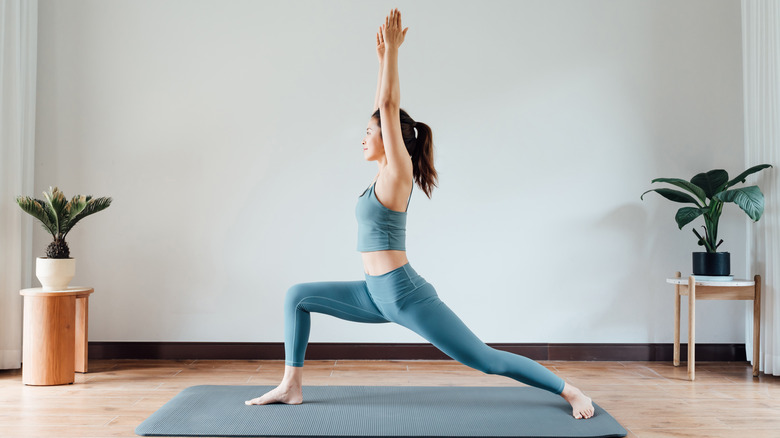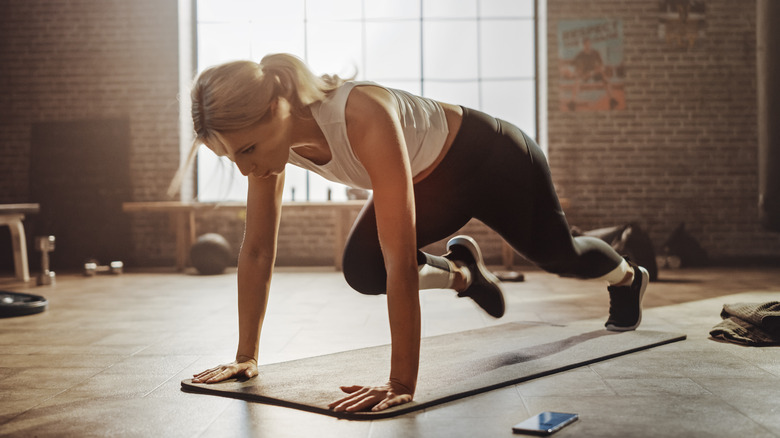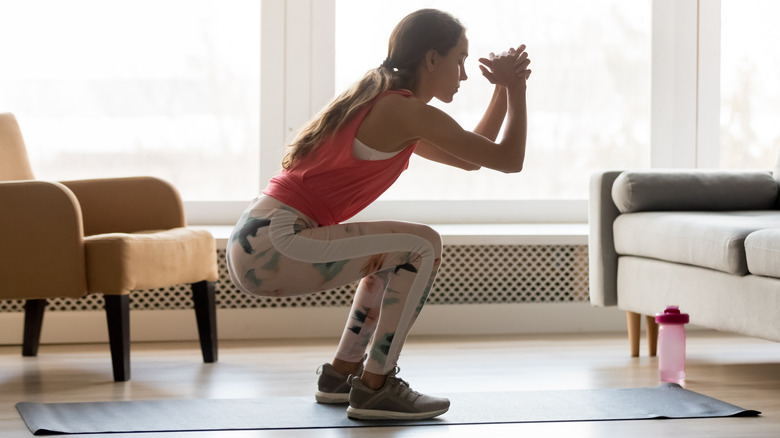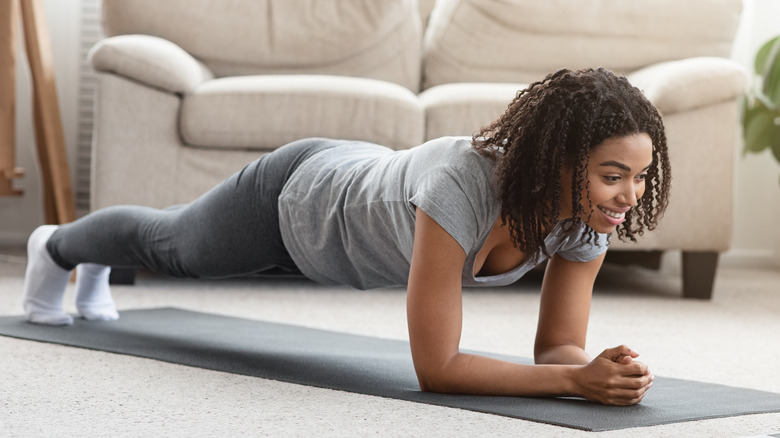
You want to build muscle at home, but don’t want to invest in weight sets and other pieces of equipment that you either can’t afford at the moment or don’t have room for. Or perhaps you are planning a week away and don’t want to pack your strength training equipment, which can be heavy and bulky. You might have a weak back and fear the stress weights can put on it. There are still a multitude of moves you can do without any equipment at all that can build and tone muscle without breaking the bank or breaking your back.
Often called bodyweight exercises because they only use your body, these moves can tone and sculpt. Bodyweight exercises take the complication out of strength training and can be done almost anywhere at any time. You can focus on just one part of your body during each workout or create a full-body routine from a few simple moves that work all your main muscle groups.
Some simple strength training tips before you get started

Remember, you do not have to strength train four to five times a week to see results. According to Self, even that may be too much if you’re jumping into strength training without much experience. If you have never worked out at all or it’s been a while since exercise was your focus, you might even start seeing results with one session per week, and then gradually increase the number to two or three times per week. Remember to also plan your workout when it’s a convenient time for you so that fitting it into a hectic schedule doesn’t seem overwhelming,
Before you begin any workout, make sure your body is warmed up. Healthline suggests taking a quick walk or jog to get your heartrate going, while Very Well Fit recommends stretching immediately before and right after a workout. It helps prevent injury and promotes flexibility so that you get optimum results from the work you’re putting in.
Strength training exercises for a full-body workout

One of the most tried and true exercises that works the entire body is the classic push-up. You can do full-body push-ups with your body in a plank position or modify them and do them on your knees, but remember to keep your core engaged. Push-ups promote core stability while giving your arms, shoulders, and chest a workout.
Start in the aforementioned plank position, make sure your shoulders are rotated back and down, and keep your back flat. Lower your body to the floor as much as you can, but don’t be discouraged if you can’t go too low at first.
If you want to get your heart rate up while building muscle, try burpees. Stand with your arms at your side and your feet shoulder-width apart, then squat while moving your hands in front of you to the ground. Jump your legs back into a plank position, hold briefly, and jump back up.
Mountain climbers also offer a full-body workout. Again, start in a plank position on your hands and toes. Then drive each knee toward your chest one at a time. Your heart rate will increase, adding some cardio from this move.
You can also get a cardio boost with rotational jacks, in which you perform a classic jumping jack, but in between each jack, rotate your torso so that one arm reaches the opposite toe (via Healthline).
Lower body strength training moves

For a bit of cardio to get your heart rate up, try standing side hops. These lateral moves help provide added mobility to your ankles and feet, two parts of the body that are frequently ignored. Start by standing straight with your feet together. Then, use the balls of your feet to jump side to side. Repeat the move about 20 times and do three reps for best results.
Squat jumps also get your heart rate up while working your glutes and hamstrings. You start with a classic squat, bending down as if you’re sitting in a chair, but then quickly jump up, pushing from the balls of your feet before landing and going right back into the squat. This high-impact move can be modified by taking the jump out if you have bad knees.
You can also take a classic squat and add a little bit of spice to it by pulsing at the bottom for about 30 seconds. This will create a burn throughout your legs, but the small move is easier on your joints than a squat jump.
To work your glutes, quadriceps, and hamstrings, try a split squat, also known as a lunge. Step one leg forward, bend your knee, bring the leg back, and repeat with the other leg (via Healthline).
Core-building strength training exercises

There is nothing better than a perfect plank to get all those core muscles engaged and working, but you can always put a twist on a plank by essentially … twisting. For plank reach-overs, assume a full plank position on your hands and toes and then alternate reaching each arm toward your thigh, and then tap. This exercise works your entire body, but it offers an added benefit to your oblique abdominal muscles (via Self).
If you prefer to do core work on your back, lie down in a typical crunch or sit-up position, but use your legs to work your core instead. Flutter kicks will activate your lower abdominal muscles. Lift both legs at a 90-degree angle, then alternate lowering each leg. However, listen to your body during this exercise. If you feel your lower back rising off the floor as your leg comes down, you have gone too far. Even if your legs don’t get close to the floor, your core will still get a workout and your back will be protected (via Women’s Health).
Source: Read Full Article
